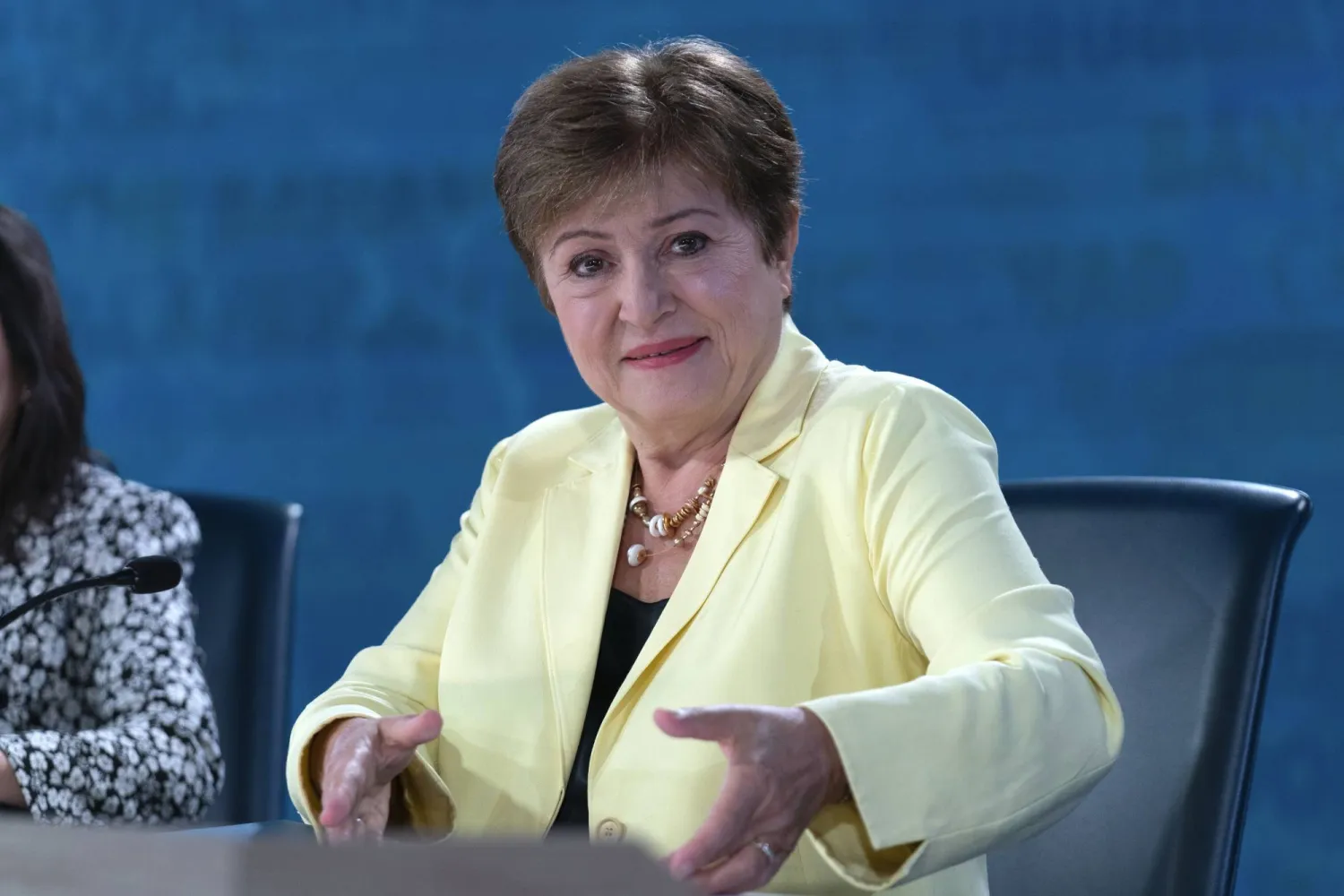International Monetary Fund Managing Director Kristalina Georgieva warned on Thursday that the world is in danger of becoming mired in a low-growth, high-debt path that will leave governments with fewer resources to improve opportunities for their people and tackle climate change and other challenges.
The result is increasingly dissatisfied populations, Georgieva said during a press conference during the IMF and World Bank annual meetings in Washington, according to Reuters.
The meetings are clouded by the looming Nov. 5 US presidential election, which raises the specter that Americans, stung by high inflation during Democratic President Joe Biden's administration, could return Republican candidate Donald Trump to the White House, ushering in a new era of protectionist trade policies and trillions of dollars in new US debt.
Dissatisfaction is not unique to the US, Georgieva said, despite the global economy showing some resilience in the face of threats from wars, weak demand in China, and the lagged effects of tight monetary policy.
"For most of the world, a 'soft landing' is in sight, but people are not feeling good about their economic prospects," Georgieva said, referring to a scenario in which high inflation is tamed without a painful recession or large job losses. "Everybody I ask here, how is your economy? The answer is good. How is the mood of your people? The answer is not so good. Families are still hurting from high prices and global growth is anemic."
The IMF on Tuesday released new economic forecasts showing that global GDP growth will decline slightly by 2029 to 3.1% from 3.2% this year, well below its 2000-2019 average of 3.8%, as current US strength fades.
At the same time, the IMF's Fiscal Monitor showed global government debt is set to top $100 trillion for the first time this year and continue rising as political sentiment increasingly favors more government spending and is resistant to tax increases. It also predicts that government debt as a share of GDP, now 93%, is set to reach 100% by 2030, exceeding its peak during the COVID pandemic.
"So here is the bottom line: the global economy is in danger of getting stuck on a low-growth, high-debt path," Georgieva said. "That means lower incomes and fewer jobs. It also means lower government revenues, so less resources for families and to fight long-term challenges like climate change. These are anxious times with these problems in mind."
Finance chiefs from G20 major economies separately expressed optimism for a soft landing, and urged resistance to protectionism.
"We observe good prospects of a soft landing of the global economy, although multiple challenges remain," the G20 finance ministers and central bank governors said in a joint statement issued after a meeting on the sidelines of the meetings in Washington.
The communique did not mention Russia's invasion of Ukraine, long a point of division for the G20, or Israel's military conflicts with the Palestinian militant group Hamas in Gaza and the Iran-backed Hezbollah organization in Lebanon.
A separate statement issued by Brazil, which currently holds the G20 presidency, said members disagreed on whether the conflicts should be discussed within the group, but added that it would continue such talks among lower-level officials ahead of a G20 leaders summit in Rio de Janeiro in November.
The IMF and World Bank meetings also have been marked by new worries about an escalation of the war in the Middle East, which was triggered a year ago by Hamas' surprise attack on Israel.
A wider escalation of the conflict could increase spillovers to economies in the region, Georgieva said, including Egypt, which earlier this year won a $3 billion increase to its IMF loan program.
Georgieva said she will travel to Egypt in the next 10 days to assess economic conditions for possible further changes to the program amid a severe drop in the country's Suez Canal revenues.
Jihad Azour, the director of the IMF's Middle East and Central Asia Department, told a briefing that the size of the program was still appropriate, but Georgieva would assess the effectiveness of the country's social protection programs in the current environment.









